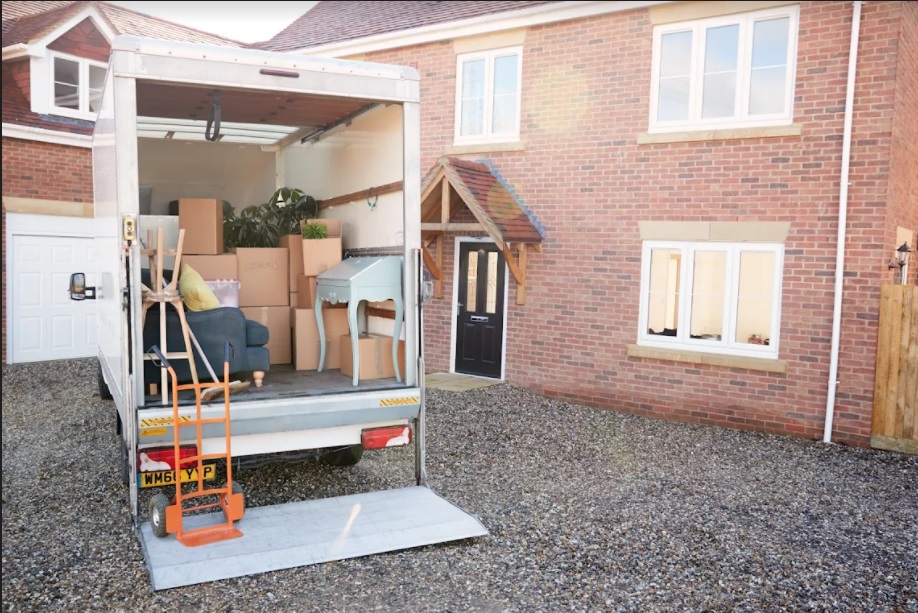
Relocating is a common occurrence in people’s lives. People move for various reasons; some of those reasons are job transfers, important life decisions, financial concerns, and relationship changes.
Without the assistance of professional house movers, moving can become a huge headache for a family. However, it doesn’t mean that it’s impossible. You can still do it on your own, but be sure to follow these nine smart tips to make it hassle-free and safe for you and your family.

- Obtain A Freight Container
Renting a shipping container storage is a huge convenience that you should consider when relocating. Whether you’re moving across the nation or just across town, renting a moving container is an affordable and efficient method to get the job done. These portable containers make moving affordable for you and safe for your belongings before, during, and after the move.
Each organization employs a slightly different method of container movement. But to simply sum their processes up, here are the things that may happen:
- They bring the container to your place
- You have several days to load your belongings goods inside their shipping container
- They pick up and transfer the container to the new place
- You have, again, several days to unload your belongings to your new place
- Begin Packing And Preparing As Soon As Possible
Rather than waiting until the week before your big move, begin collecting moving boxes and supplies while organizing your possessions. To avoid being overwhelmed, arrange and pack one room at a time.
This is also a good time to determine which things you’ll keep and dispose of. While filling the moving boxes, divide your possessions into three categories: pack/keep, donation, and garbage. By doing this, you may significantly benefit from the following:
- Speed up the packing process
- Reduce the amount you need to bring and unpack later
- Help those in need
- Create A Schedule For Your Move
Create a week-by-week checklist to keep the process on track. Start the checklist 60 days before your relocation date. The tasks remaining after moving day may seem trivial at the beginning, but following the checklist to the T will allow you to avoid last-minute headaches.
- Maintain A Separate, Lightweight Bag For Your Necessities
Most likely, you’ll not immediately unpack everything. You’re going to take a break, drink a glass of water or two, and do whatever else is necessary.
In this circumstance, your ‘necessities’ pack will come in handy. Your bags for necessities should contain the following:
- Food and beverages
- Toiletries and spare clothes
- Cleaning supplies and small plastic bags for waste disposal
- Fully charged electronic gadgets and chargers
- Your Garments Should Be Rolled, Folded, And Bundled
Clothing packing is notoriously tricky. They should be packed tight but you’ll want to make it simple to recover them if necessary. Most people roll, fold, or bundle their clothing. Each of these solutions has several advantages and disadvantages, so the ideal way to pack clothes is to pack the clothes accordingly on the type of clothing to be packed.
Rather than folding everything origami-style, stack the wrinkle-prone garments on top of one another, roll the wrinkle-resistant clothes to fill in empty areas, and store the remaining clothes in space bags to prevent them from blowing out excessively.
- Avoid Overpacking Boxes
Don’t be tempted to only getting and using the biggest moving boxes you can afford to avoid lifting-related injuries. Limiting yourself to using large boxes can easily induce you to overpack.
It’s recommended to acquire boxes of different sizes and be smart on what and how many items you’ll pack according to the size of the box. Also, it would be best for you to get a medium-size weighing scale to help you manage the weight of each box and prevent them from bursting if their contents are heavier than their weight limits.
- Lift Big Objects Carefully
When transferring bulky things, keep proper lifting methods in mind. it’s necessary to squat and lift using your complete body. Additionally, don’t lift alone. Make sure that you’re with someone for you to get help if needed.
- Ascertain That You Receive Adequate Rest
Getting adequate sleep is critical during your relocation. After all, you’re more likely to have an accident when you’re fatigued. When you’re packing or unpacking, you can succumb to the desire to stay up as late as possible, so do everything in your power to avoid that.
- Use A Clear Pathway
Maintain a clean route to the front door on moving day to avoid tripping over boxes while transporting belongings to the car. Trips and falls are common accidents that happen during relocation, so eliminate dangers by establishing a clear path.
Takeaway
While moving can be nerve-wracking, it does not have to be. There are numerous strategies to alleviate the stress associated with moving. Establish reasonable expectations for what you can accomplish once you’ve settled into your new house.









